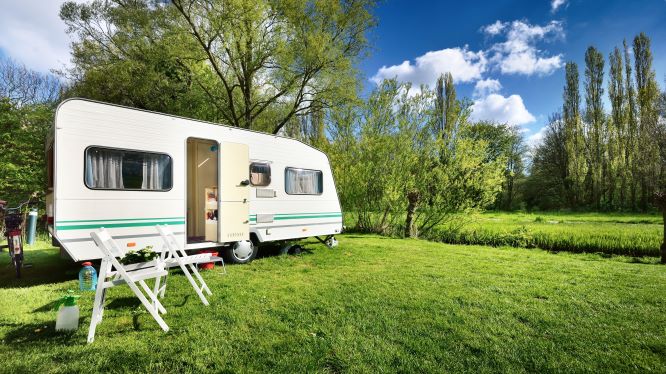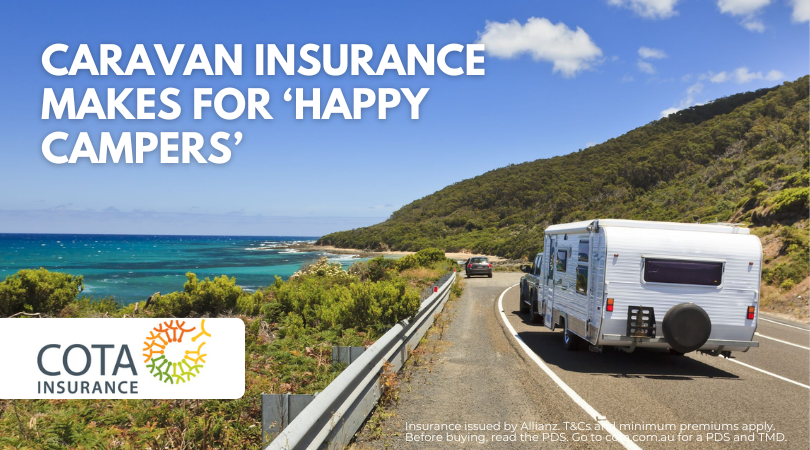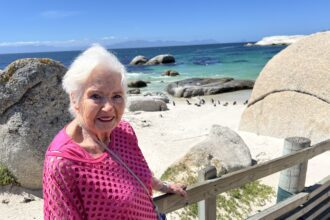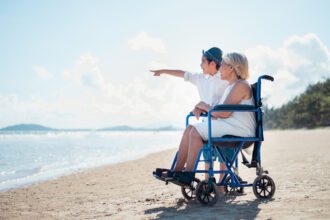Caravan and Camping Tips
We have seen a huge increase in caravan and camping in the recent years. Therefore, to help you on your travels, we have collated all the top tips for caravanning and camping, from experienced travellers, with everything from packing tips, to campsite tips.
Pre-packing
Try and pre-pack as much as you can, the core essentials such as toiletries, non-perishable food, clothes, shoes, towels, bedding. Prepacking your camper or caravan will minimise the amount of packing you do each time you go away. Aim to only have to pack clothes and fresh foods for a camping weekend away. The less hassle, the more you will want to get away.
Packing cells
Packing cells/cases are available almost everywhere nowadays, not just the travel and camping stores. They are great to pack your items separately in your bag and are really helpful for using to take to bathroom amenity blocks. They often have tabs so that you can hang them (especially helpful for keeping things dry in a shower) and just being able to separate underwear from shoes, or pack outfits separately is really handy.
Use checklists
There’s lots to remember when packing and packing up before and after going away. Checklists are the way to go! A list on your phone, or a handwritten note is all you need. Add to your checklist as you need and every time you use it, it will be more thorough. This link provides a really thorough packing and pre-travel list:- www.chartandmapshop.com.au/blog/caravan-checklist-essential-packing-list-and-pre-travel-checks/
Fix things into place
Double sided Velcro is great for securing loose items. Stick items to the wall with Velcro so they don’t move around and always stay put. For example, anti-bacterial gel, hand soap, remote controls, iPad etc can be stuck to a bench, and will remain secure even when your driving. Velcro can also be used for hanging portable lights, tying up power cords, wrapping around paper towel rolls to stop them unrolling, wrapping around rolled up tarps and more.
Removable 3M hooks are also really handy – and things that will fall off hooks easily can be replaced with hooks with eyelets and a small clip gate, and problem solved.
A place for everything
A really helpful tip is to have a place for everything and then making sure everyone knows where that is. So once you have used something, you put it away in its place and that way things aren’t left out everywhere and you can avoid spending ages looking for things that have moved or been put away in the wrong spot.
Shoe storage
Attach a collapsible hanging shoe rack to a tent pole or awning arm and this can store the whole family’s shoes and thongs in one spot, getting rid of the pile of shoes at the doorway!
Alternatively buy a few shoe bags, which is a zippered bag that usually has a mesh end – you can often buy these at your local tennis or squash club. These bags are great for holding 4-5 pairs of thongs, and then everyone’s shoes are all packed in one (or more) small compact bag.
Hanging storage
A flexible hanging shoe rack is also handy for other things such as such as wipes, barbecue tools, sauces, bug spray, sunscreen and more. All the daily use items in one convenient location. Hang it in a convenient location in your caravan or campervan and it packs up to a small size when not in use.
Laundry solutions
Use a collapsible laundry hamper, put it up in the corner of the tent or caravan and while away everyone can throw their dirty laundry in there. Having a dirty clothes bag that can go from van to house/laundromat makes a trip away that much easier – when clean clothes are separated from dirty clothes.
Rubbish solutions
Another collapsible laundry hamper can be used for rubbish. Line it with a garbage bag, and use Velcro through the handle to secure it to a tent pole to stop your rubbish blowing away in windy weather. Alternatively, just using garbage bags, tying them to the rear/front of your caravan or trailer to also stop them blowing away – often drawstring garbage bags work best.
Make your own ice
If you are using eskies, ice can be costly, so why not make your own. There are several ways, either save used milk cartons (card or plastic ones), filling them with water and freeze at home and layer them with food/drinks in the esky when it’s time to go. You can also make smaller blocks of ice using plastic zip lock bags. ¾ fill the plastic bag, place flat in the freezer and when its frozen you can either leave it in the bag or remove it to put in the esky.
If you like ice cubes in your drinks, make a bunch of ice cubes on the days leading up to going away, store these in a medium zip lock bag and you have ice that is drink ready!
Re-freezable ice sheets are also great and come in all sorts of shapes and sizes, if you are wanting to invest in them. Just remember that the larger the ice you can make, the longer it will last.
Food storage
When packing your food, pack your meat into specific food portions, enough for each meal for everyone. You can do this with zip lock bags, or invest in a vacuum seal machine and bags, as meat lasts longer when vacuum sealed. Premade meals can also be packed this way. These methods will mean no meat juice in your fridge or esky and easy packing (flat packing).
Precook meals
Make and freeze meals in advance, frozen in zip lock bags or takeaway food containers. This is especially helpful for the first night away where you may still be unpacking and need the simplest meal as possible. Premade meals can include spaghetti bolognaise, chilli, casseroles, etc. Then you only need to cook the pasta or a baked potato in the fire to serve with it.
Herbs and spices
A great way to store all your herbs and spices is in little Tic Tac containers. This takes up a lot less room than normal spice jars, and they can be left in the caravan or campervan when not away. Helps with pre-packing for future trips.
Wipes and paper towel
Paper towel and baby wipes are especially handy while away camping – although not that environmentally friendly. Use them for spills, quick cleaning, hand washing etc.
Baking paper
Baking paper can be used on a camp stove or barbecue to minimise the mess that cooking creates, especially meat/food with sauces and marinades. This will make cleaning easier and save you time.
Pencil case
Take a pencil case to use to keep all your keys in one place and other small valuables – although it’s usually best to leave as many valuables at home. The pencil case can then be hidden when you go out and keys also won’t get misplaced.
Valuables
Got an empty Pringles container around? They are great to store and hide your valuables in while camping, at the beach or river. Just make sure that everyone with you knows it’s not really Pringles!
Camp kitchens
Camp kitchen usually have all the basic cooking and washing up amenities. They are great for cooking and washing up, meeting people and getting more camping or visiting tips. Using a camp kitchen, even if it’s just for dishes, can help minimise mess at your own site.
Confirm check in and out times
Call ahead or look up online for the check-in time so that you don’t arrive early. This also applies when checking out. Often between check-out and check-in time is when maintenance, watering or mowing is done.
Park speed limit
There are often many kids in caravan parks, many on bikes and the like. This is why it is really important to adhere to the parks speed limit, which is usually walking pace – to protect ensure everyone’s safety.
Know your size
It’s worth knowing how long, wide and tall your complete camping setup is. This will make sure that you are within the site boundary. If you have any issues with any tree branches, see the park reception for assistance.
Stick to your space
Avoid cutting through neighbour’s sites by sticking to the roads and walkways. This will avoid upsetting others or accidently damaging someone else’s belongings. Its polite to be aware of other people’s space.
Pet friendly
If you travel with your pet, make sure you always clean up after them, keep them on a leash in shared spaces, follow the park pet rules and never leave them unattended. Try and remember to also socialise them with other pets cautiously, as not all pets are friendly.
Noise friendly
Be noise friendly by following the camp rules in regards to noise. Turn your music and entertainment down so others can get their sleep. Remember that caravan, tent and camper walls are very thin and you can usually hear everything while inside them at night. Generators can also pose a sound issue so book a powered site where you can.
Clean up after yourself
Always treat your site and the park facilities like your home and leave them as you found them. So leave your site clean, dispose of rubbish accordingly, use a mop (if provided) in shower cubicles and leave camp kitchens and communal BBQs clean and tidy.
Help out
Do your part and do a clean-up. Whether that means picking up some rubbish from a local area, giving the camp kitchen or communal BBQ an extra good clean. Every little bit helps!
Other simple tips:
- Take a well-equipped tool box camping, including a mallet, screwdrivers, spanners, fuses, etc.
- Get a good quality hose bag for sullage and a drinking water hose.
- Take citronella burners, candles or mosquito coils on trips.
- Have cleaning cloths or paper towel handy to clean dirty gear, such as hoses, when packing up.
- Take LED head torches for setting up camp in the dark.
- Take two small walkie talkies with you. These are great for reversing the vans / trailers into tight spots
- When not in use, make sure your fridge is stored with the door locked in the open position to allow air flow and avoid mould.
- Always make sure the van is thoroughly cleaned when you arrive home, that way it is already to go on the next trip and you won’t need to clean everything and pack when you go away next time.
Lastly it’s important that you do what’s right for you! With so much advice out there, it can be hard to know what’s right or wrong. Choose things that sound like a good idea, try them and if they work keep doing it, if not try something else until you find what suits you and your lifestyle.
Interested in similar articles? Why not check these out:
Caravan Insurance makes for ‘happy campers’











